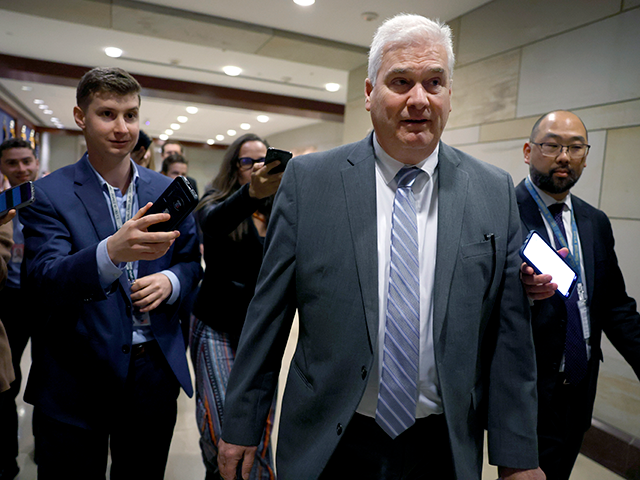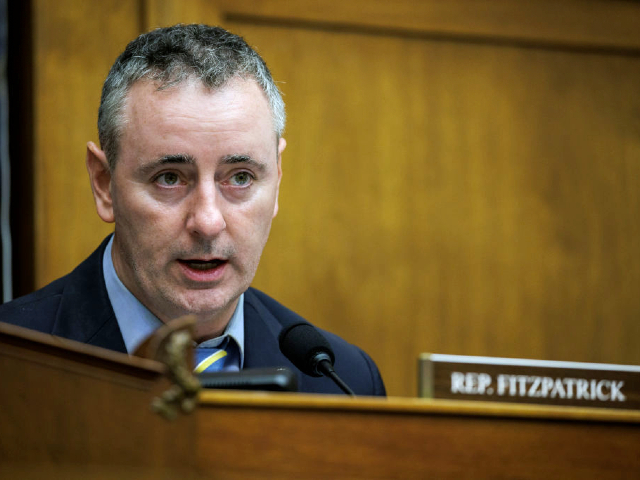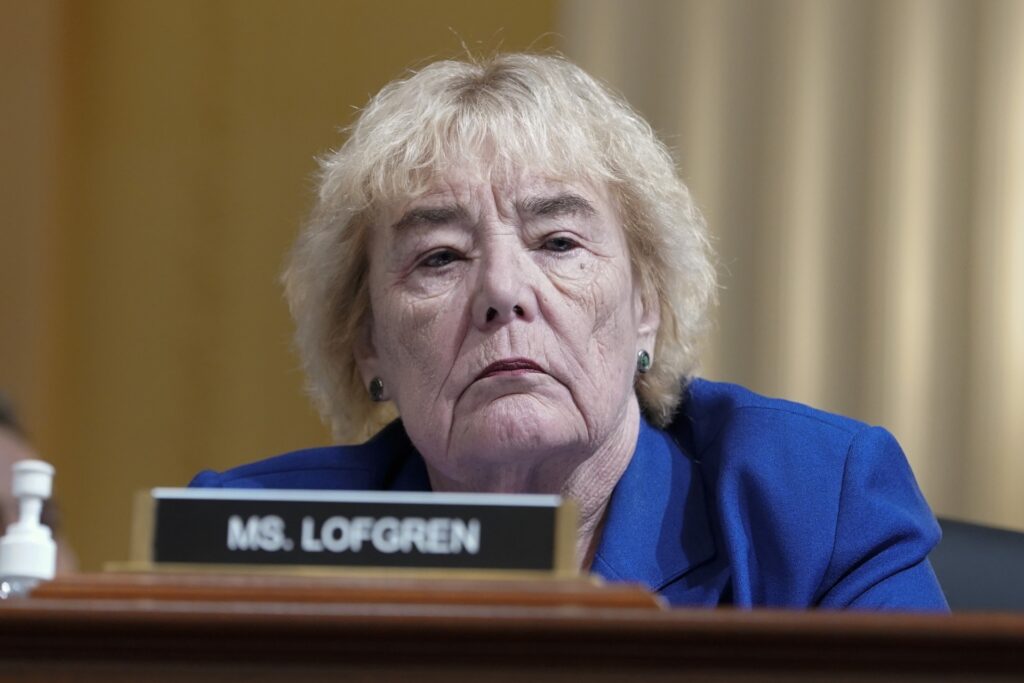House Democrats are working with a handful of Republican legislators to pass a visa bill that would supercharge the citizenship incentives for Indians and Chinese to take Fortune 500 white-collar careers from indebted American graduates.
The visa giveaway in the EAGLE Act of 2022 threatens the careers of many American graduates — including many graduates who once voted Republican but recently provided critical swing vote support for the Democrats in the 2022 election.
The act is also being debated even though the much-criticized backlog of migrant graduates has fallen sharply since 2020. The backlog fell because President Joe Biden’s deputies converted green cards for chain-migration families into green cards for Fortune 500 workers.
“FAIR firmly opposes the EAGLE Act (H.R. 3648),” says a statement from Joe Chatham, the senior government relations manager at the Federation for American Immigration Reform (FAIR). The statement says:
This bill undermines the fairness in our immigration system by creating a preference for workers from India and China at the expense of all other workers across the globe. It also eliminates diversity in the workers who come to the U.S. permanently. And, in the end, it would do nothing to reduce the line for employment-based green cards but would instead create more competition for American workers while lining the pockets of Big Tech.
The bill — which may be combined with another bill — is being backed by 83 sponsors in the House, led by Rep. Zoe Lofgren (D-CA), who represents many business interests in Silicon Valley.
Eight Republicans have cosponsored the bill, including the manager of the Republicans’ surprisingly narrow 2022 win, Rep. Tom Emmer (R-MN). Last week, Emmer narrowly beat Rep. Jim Banks (R-IN) for the job of GOP whip.

Rep. Tom Emmer (R-MN) is followed by reporters as he arrives to a House Republican Caucus meeting at the U.S. Capitol Building on November 14, 2022 in Washington, DC. (Anna Moneymaker/Getty Images)
Rep. Brian Fitzpatrick (R-PA) is another supporter of the outsourcing bill. He is also co-chairman of the establishment-minded Problem Solvers Caucus and is also pushing a farmworker amnesty that helps agricultural investors.

Rep. Brian Fitzpatrick (R-PA) delivers his opening statement during a U.S. House Foreign Affairs Subcommittee during a hearing on Capitol Hill on September 21, 2022 in Washington, DC. (Samuel Corum/Getty Images)
Rep. Don Bacon (R-NE), the co-leader of the Main Street Caucus, is also a supporter of the giveaway to the Fortune 500 and foreign graduates.
The other supporters include Rep. Larry Bucshon (R-IN), Rep. John Curtis (R-UT), Rep. Bill Johnson (R-OH), Rep. Pete Stauber (R-MN), and Rep. William Timmons (R-SC).
The support from heartland Republicans is ironic because the bill reduces incentives for investors in major coastal cities to hire graduates in Ohio, Indiana, Minnesota, or Nebraska.
Instead, investors can use the fast-track provisions in the EAGLE act to import and hire more cheap and compliant Indian and Chinese graduates for jobs in the investors’ coastal states. Without the ability to fly in foreign workers, investors would be under more labor-market pressure to put their investments in the heartland states.
Investors and the Fortune 500
The bill is strongly backed by business donors who want to recruit many more cheap foreign workers, even as many American graduates are being laid off by technology companies, including Twitter and Facebook.
Just leaving Twitter HQ code review pic.twitter.com/pYcXRTJm14
— Elon Musk (@elonmusk) November 19, 2022
The bill is a priority for the Silicon Valley investors in FWD.us :
Per-country caps have created extensive backlogs that leave immigrants and their families waiting years to receive their green cards simply because of their country of origin. This restricts their ability to work, travel, and contribute, and creates significant challenges for their families. It also makes the U.S. less attractive to global talent, hindering our competitiveness. Congress should pass per-country cap reform, like the bipartisan EAGLE Act, to ensure fairness and begin reducing the green card backlogs.
The coastal investors have pushed many bills to increase their use of foreign workers. This year, Midwest Senators blocked another proposed pipeline of foreign graduates.
The investors and their advocates prefer to focus on the bill’s removal of pro-diversity “country caps” in the annual award of 140,000 green cards to foreign employees of U.S-based companies.
But the bill also creates a “green card lite” which would allow foreign workers to get permanent work permits just two years after their employer approves them for a green card.
Both provisions will accelerate the legalization bonus award to Indian and Chinese workers. In turn, that acceleration will help Fortune 500 executives fill many more white-collar jobs with foreign workers via the uncapped, open-ended, unlimited Optional Practical Training (OPT) program.
The OPT program is a boon to universities because it allows them to offer work permits to foreign graduates who enroll in their courses. In turn, the program also provides Fortune 500 companies with a huge army of several hundred thousand eager, desperate, low-tax, and partially free foreign graduates each year. A three-judge panel in Washington D.C. recently declared that the OPT program is legal, even though it was created by President George Bush’s deputies — not by Congress — after Microsoft failed to expand the H-1B program.
Country Caps
Supporters of the bill prefer to focus on the country caps, not on the incentives for more foreign graduates to seek jobs in the United States.
The country caps were established to ensure that employer-provided green cards were distributed to people in many countries. These caps limit each country’s receipt of green cards to 7 percent of all the cards.
But the Fortune 500 and its networks of investors have ruthlessly imported more than roughly one million million cheap and compliant graduates by dangling the deferred-bonus carrot of U.S. citizenship. These workers are allowed to work in the United States via the H-1B, L-1, and H4EAD programs, and most expect to be allowed to request green cards after several years on the job.
The deferred bonus prize of citizenship is a huge incentive for foreign workers to work in the U.S., regardless of the waiting period.
The taxpayer-provided bonus is worth at least $1 million per work because it allows the foreign workers — plus some family members — and all of their children and grandchildren — to exit Asia and become Americans.
The value of that bonus is so large that it is greater than compensation paid to American workers — and it also costs the companies very little above the cost of applying for green cards.
The resulting crush of migrants has backlogged the green card process.
In March 2022, for example, 900,000 foreign workers and their families were waiting for green cards — even as U.S. employers ignored the growing army of underemployed Americans trained to do the jobs filled by foreign workers.
In turn, the backlog leaves roughly 400,000 Indian and Chinese graduates to work many years in white-collar jobs — often for subcontracting firms in the hourly jobs once were awarded to full-time, middle-class American employees. This huge pyramid of Fortune 500 subcontractors and sub-subcontractors ruthlessly exploit the green card workforce in so-called “body shops,” or “software sweatshops,” often via hidden kickbacks to foreign-born hiring managers.
This huge block of legalized labor is boosted by the contractors’ use of OPT graduates, foreign workers admitted as B-1/B-2 tourists and foreign graduates who overstayed their visas. These pyramid workers are forced to compete with each other for promotions into the H-1B or L-1 programs that are the gateways to citizenship.
The ruthless nature of the labor pyramids and the minimal federal oversight encourage widespread law-breaking, including discrimination and the imposition of Indian caste discrimination in U.S. workplaces.
For example, a contract worker named Aabha told Breitbart News that many Indian visa workers are taking several contract jobs and then inviting friends from India to do the extra work illegally:
[Indians are] taking four [contract] jobs each because everybody can take four jobs and outsource them to [Indian] people … They are calling people from India [to work in the U.S.] for six months because in those six months, they can make enough money. Then this person goes back, and then somebody else comes on a visitor’s [B1/B2 tourist] visa. He stays for six months, he does the job [illegally], and he goes back. … Because, of course, we are getting paid like $7,000 per month [for each contract], there is no harm in giving $2,000 to the [visiting] person who is actually doing the job, right?
These outsourcing and workplace conflicts have crippled many major companies, such as Intel, Boeing, and Theranos.
Opponents note that the bill will not reduce the backlog because it does not prevent the companies from hiring far more foreign workers than the annual supply of green cards.
“Even if the per-country caps are repealed for employment-based green cards, it will not reduce the backlog,” noted FAIR, adding:
Applications will continue to increase and the queue will grow. The only difference will be the distribution of the green cards. Under the EAGLE Act, the overwhelming majority of the recipients will be from India and China, and the rest of the world will be moved behind that backlog, which was caused by their monopolization of the H-1B program … In short, the EAGLE Act will wreck the employment-based immigration system for applicants from the rest of the world for the sole purpose of shifting more green cards to India and China.
…
Special interests will soon come back to Congress with demands to increase the H-1B cap or increase the cap on employment-based green cards—or both. This would further accelerate the displacement of American tech workers, and undermine benefits of a tightening labor market for American workers. It could squeeze many Americans out of that market almost entirely.
Indians and Chinese
The direct beneficiaries of the EAGLE Act would be the 700,000 Indian migrants and their family members who are working while waiting many years for green cards. Roughly 100,000 Chinese white-collar workers also must wait while they work.
This is just one floor of Walmart out 3 floors where 1000 and 1000 opt(bentonville, AR)students(mostly fake) are working under 20 to 30$/h and killing white color jobs.
TCS, COGNOZANT, INFOSYS,only hire Indians. How many more proof do we need. ? pic.twitter.com/PquTPhXWYE— Agram Bagram bhooo (@S1S1B1) March 23, 2019
In addition, another 80,000 migrants from Central America are working in lower-wage jobs while they wait for the green-card payoff. For example, Abbyland Foods, Gerber Poultry, Peco Foods, and Select Dedicated Solutions reward migrant workers with government-provided green cards. This legal labor pipeline allows many CEOs to shave Americans’ wages, minimize investment in labor-saving technology, and divert consumer spending from heartland cities into Wall Street stock values.
India has the largest share of the workforce because India’s government works with American investors to maximize outsourcing to India. Many Chinese graduates are hired because China’s large population includes many very clever people
Business advocates dismiss the risks of U.S. reliance on foreign workers. Those risks include the loss of intellectual property, privacy, and security during a crisis, as well as the loss of displaced U.S. talent.
Advocates say the bill will free Indian and Chinese workers from the 7 percent country cap rule.
But the complex law includes many loopholes, nationals from those two countries soften often get green cards far above the so-called “country cap” of 7 percent. In 2021, for example, Indians received 74,000 cards or more than 50 percent of the usual annual number.” The number is likely even higher in 2022.
The 2022 rush of extra green cards allowed three or four years’ worth of Indian workers to get green cards and ended the Indian backlog for two of the three categories of employer green cards.
Those newly legalized Indian graduates are now free to compete against American workers and also to import more Indians for subcontracting contracts.
That inflow is good for employers but bad for Americans’ salaries. “Most college graduates have actually seen their real incomes stagnate or even decline” since 2000, New York Times columnist Paul Krugman wrote on April 29.
“For decades, lawmakers here in Washington have ignored the practice of replacing Americans with ‘temporary’ foreign workers,” said FAIR, which added:
The current employment green card system needs to be replaced by one that is merit-based, offering a reasonable number of green cards to highly qualified applicants. Instead of doing so, the EAGLE Act maintains the current dysfunctional system, doing nothing for American workers while further strengthening foreign workers’ place in the American labor force – it must be rejected.
For Republicans, “there’s clearly an electoral potential in blocking this bill,” said Mark Krikorian, the director of the Center for Immigration Studies:
Republicans should be blocking this bill because it hurts American workers … [and because liberal graduates] are being played for fools by big business. This would be funny if the consequences weren’t so harmful because progressivism now has now become a tool of capital.
Extraction Migration
Government officials try to grow the economy by raising exports, productivity, and the birth rate. But officials want rapid results, so they also try to expand the economy by extracting millions of migrants from poor countries to serve as extra workers, consumers, and renters.
This policy floods the labor market and so it shifts vast wealth from ordinary people to older investors, coastal billionaires, and Wall Street. It makes it difficult for ordinary Americans to advance in their careers, get married, raise families, buy homes, or gain wealth.
Extraction Migration slows innovation and shrinks Americans’ productivity. This happens because migration allows employers to boost stock prices by using stoop labor and disposable workers instead of the skilled American professionals and productivity-boosting technology that earlier allowed Americans and their communities to earn more money.
This migration policy also reduces exports because it minimizes shareholder pressure on C-suite executives to take a career risk by trying to grow exports to poor countries.
Migration undermines employees’ workplace rights, and it widens the regional economic gaps between the Democrats’ cheap-labor coastal states and the Republicans’ heartland and southern states.
An economy fueled by Extraction Migration also drains Americans’ political clout over elites and it alienates young people. It radicalizes Americans’ democratic civic culture because it gives a moral excuse for wealthy elites and progressives to ignore despairing Americans at the bottom of society, such as drug addicts.
This diversify-and-rule investor strategy is enthusiastically pushed by progressives. They wish to transform the U.S. from a society governed by European-origin civic culture into an economic empire of jealous identity groups overseen by progressive hall monitors. “We’re trying to become the first multiracial, multi-ethnic superpower in the world,” Silicon Valley Rep. Rohit Khanna (D-CA) told the New York Times in March 2022. “It will be an extraordinary achievement … We will ultimately triumph,” he boasted.
But the progressives’ colonialism-like economic strategy kills many migrants. It exploits the poverty of migrants and splits foreign families as it extracts human resources from poor home countries to serve wealthy U.S. investors.
Progressives hide this Extraction Migration economic policy behind a wide variety of noble-sounding explanations and theatrical border security programs. Progressives claim the U.S. is a “Nation of Immigrants,” that economic migrants are political victims, that migration helps migrants more than Americans, and that the state must renew itself by replacing populations.
Similarly, establishment Republicans, media businesses, and major GOP donors hide the skew towards investors by ignoring the pocketbook impact and by touting border chaos, welfare spending, migrant crime, and drug smuggling.
Many polls show the public wants to welcome some immigration. But the polls also show deep and broad public opposition to labor migration and to the inflow of temporary contract workers into the jobs needed by the families of blue-collar and white-collar Americans.
This “Third Rail” opposition is growing, anti-establishment, multiracial, cross-sex, non-racist, class-based, bipartisan, rational, persistent, and recognizes the solidarity that American citizens owe to one another.


COMMENTS
Please let us know if you're having issues with commenting.